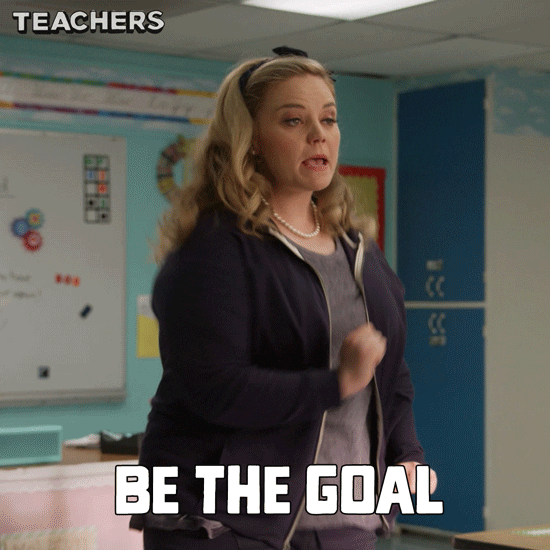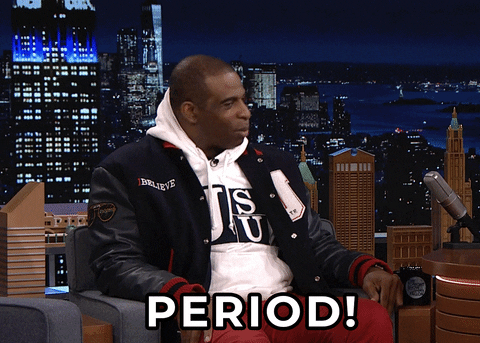17 May 2023 | Sales
Your reps don’t need to be great at everything
By Gabrielle "GB" Blackwell

Once upon a time I worked for a manager who constantly focused on my flaws and weaknesses.
It didn’t matter how hard I worked or how my team was progressing, I just ended up feeling like I could never do anything right. I felt really lost. My self esteem was in pieces. I began to believe I could never be enough.
Thankfully, I was working with a coach around this time who showed me how much more effective relying on strengths can be rather than focusing on weaknesses when working towards a goal.
Within a month of prioritizing a strengths-first approach to my performance, I felt more confident in what I was doing as a manager, saw my team’s performance improve month over month, and felt more at ease at work.
My coach’s lessons inspired me to rethink how I approach achieving my own goals. Along the way, she also inspired me to rethink how I approach developmental goals with my reps.
What your reps actually need…

🔑 Your reps DO NOT NEED to be great at all competencies!
They simply need to know:
- What their goals are in the short term
- Which competencies they’re strong at already
- How strengths can help them achieve their goals
- What to look at to know they’ve accomplished their goal
What are their goals in the short term?

Short term goals for reps are all about making small changes that increase quantity or quality of work on a week to week basis.
Consider:
- Activity volume – calls made, emails sent, conversations had, etc
- Conversion rates – calls made to conversations had, conversations had to demos booked, etc
- Weekly performance – opportunities created, pipeline generated, etc
To get your rep thinking about what their goals should be for the week, consider asking them, “When looking at your business, where do you see opportunities to make improvements in the short term?”
Assist: The easiest way to identify the right short term goals is through looking at the data. If your reps are struggling to hit weekly performance goals and aren’t hitting their activity numbers, time management and organization may need to be strengthened. If reps have the right activity levels, but are still struggling to hit weekly performance goals, see where in their process the bottleneck is happening.
Finding the strengths is the easy part…

Getting your rep to share what they’re strong at already is really straightforward.
Show your rep the list of competencies you use and ask, “What are two competencies you see as strengths of yours in this role?”
Assist: You may need to recalibrate your reps’ perception of their strengths. Echoing the prior ‘Assist’, data is here to help. If your rep claims a strength but data says otherwise – e.g. they’re performing below the average in the competency – help them by showing them areas where they’re stronger.
But here’s where the magic happens
The magic of strength based coaching and management is all about keeping people in their zone of feeling good and confident. And as Deion Sanders likes to say, “if you feel good, you play good.”

So…once you and your reps feel good about where their strengths lie, ask your rep, “How can your strengths be applied to help you achieve your weekly goals?”
Example: Let’s say you have a rep who struggles with conversion rates, but they’re great at volume. Their strength is getting a lot done in a short amount of time. In this situation, their strength can be applied by getting their daily tasks done sooner in the day, leaving more room for learning and development work that’ll help them increase their conversion rates.
Assist: Some reps may not be aware of their strengths, how they can be applied and/or they’re not quite confident enough to claim a strength yet. You’re there to affirm where they do well and show them how to apply it.
Keep the flywheel going

The last piece of using strengths is outlining what needs to happen to make progress and figuring out how you and your rep will know that the goal has been reached.
To do this, partner with your rep to:
- Create milestones that will let you know your rep is progressing against their goal — these should include specific actions that need to be completed or measurements that need to be hit.
- Come up with agreements on when to check back in on these items — should goal progress be tracked on a daily basis? A weekly basis? Or somewhere in between?
- Identify when you know your rep has achieved their goal and can move on — whether your rep’s goal is meeting activity minimums, increasing a conversion rate, or having more conversations in a week, the one thing you’ll want to see from them is consistency in achieving that goal.
Questions to ask to help guide your rep to their own answer:
- What specific actions would you need to take to drive progress towards your goals?
- How often should you measure progress towards your goals?
- What are the key signals or measurements you need to look at to let you know you’re making progress?
Assist: Consistency is met when a rep hits their goals for 2-3 weeks in a row. Once they hit that 2-3 week mark, move onto their next goal.
Strength begets strength
People don’t need to be great at everything all at once. They just need to know what they’re already good at and find ways to use their strengths to compensate for areas they’re still developing. The more you can encourage your reps to focus on their strengths, the faster you’ll see your reps improve performance.
Also — stay tuned for next week’s newsletter as I’m dropping some tactical goodness on how to keep track of development goals and progress for reps on your team!